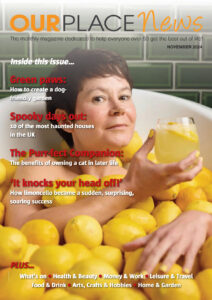Drinking a glass of THIS juice a day reduces blood pressure in the elderly
A GLASS of beetroot juice a day boosts fitness and reduces blood pressure in the elderly, according
to new research.
 The Express reports that a study found they were able to spend 24 percent longer cycling on an exercise bike – after just a week of taking the drink.
The Express reports that a study found they were able to spend 24 percent longer cycling on an exercise bike – after just a week of taking the drink.
The root vegetable is now a recognised superfood because of its high concentrations of nitrate which can increase oxygen in areas of the body which are specifically lacking supply. So scientists looked at its effect on 19 people with HFPEF (heart failure with preserved ejection fraction), the most common form of the condition, which causes shortness of breath and fatigue with normal amounts of exertion and mainly affects women.
Evidence is emerging nitrate supplements improve blood pressure, vascular health, exercise capacity and oxygen metabolism. In the study the aerobic endurance and blood pressure were first measured after the participants received either a single dose of beetroot juice or a placebo. The researchers then administered a daily dose of the drink to all the patients for an average of seven days, and measured endurance and blood pressure again. The juice dose was equivalent to 2.4 ounces containing approximately 6 millimoles of inorganic nitrate.
The team found that the daily dosing of beetroot juice improved aerobic endurance by 24 percent after a week, as compared to the single dose which produced no improvement. Aerobic endurance was measured as cycling time to exhaustion at a fixed workload lower than their maximum. Another finding was that consumption of the juice significantly reduced resting systolic blood pressure in both the single and daily dose groups by 5 to 10 mmHg. No adverse events were associated with either intervention.
Professor Dalane Kitzman, of Wake Forest Baptist Medical Centre, Winston-Salem, North Carolina, said: “Although larger trials need to be conducted, these initial findings suggest one week of daily beetroot juice could be a potential therapeutic option to improve aerobic endurance in patients with HFPEF, which has implications for improving everyday activities and quality of life.”
The findings published in the Journal of the American College of Cardiology-Heart Failure follows British research last year showing patients with high blood pressure who drank a daily 250ml glass of beetroot juice experienced an average decrease in blood pressure of about 8/4 mmHg. For many patients those brought their blood pressure levels back into the ‘normal’ range. Other leafy green vegetables high in inorganic nitrate include lettuce and cabbage.
Studies suggest each 2mmHg rise in blood pressure increases the likelihood of death from heart disease by seven per cent and stroke by ten per cent. The average reduction in blood pressure through a single anti-hypertensive drug is 9/5 mmHg, suggesting dietary nitrate as an effective, easy and affordable treatment in managing blood pressure with similar results to drug treatment.
(Article source: The Express)

